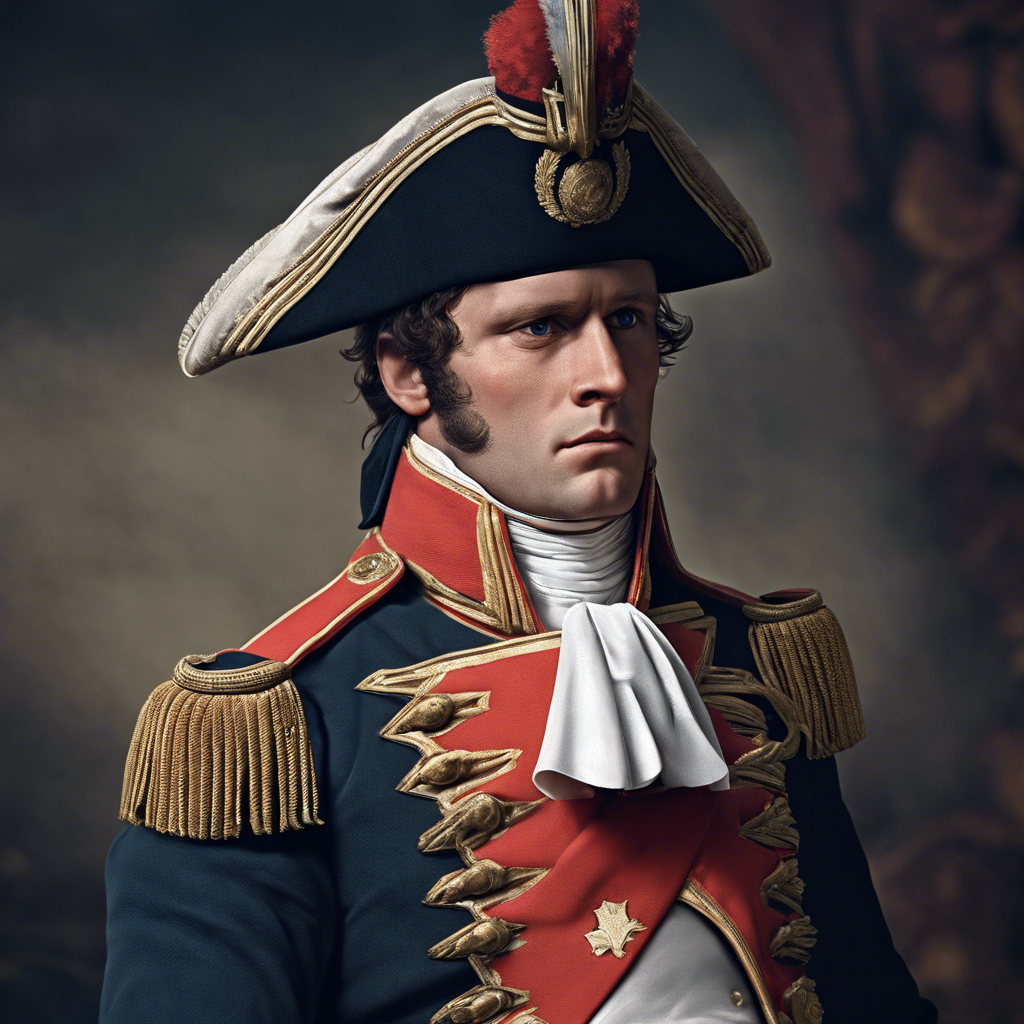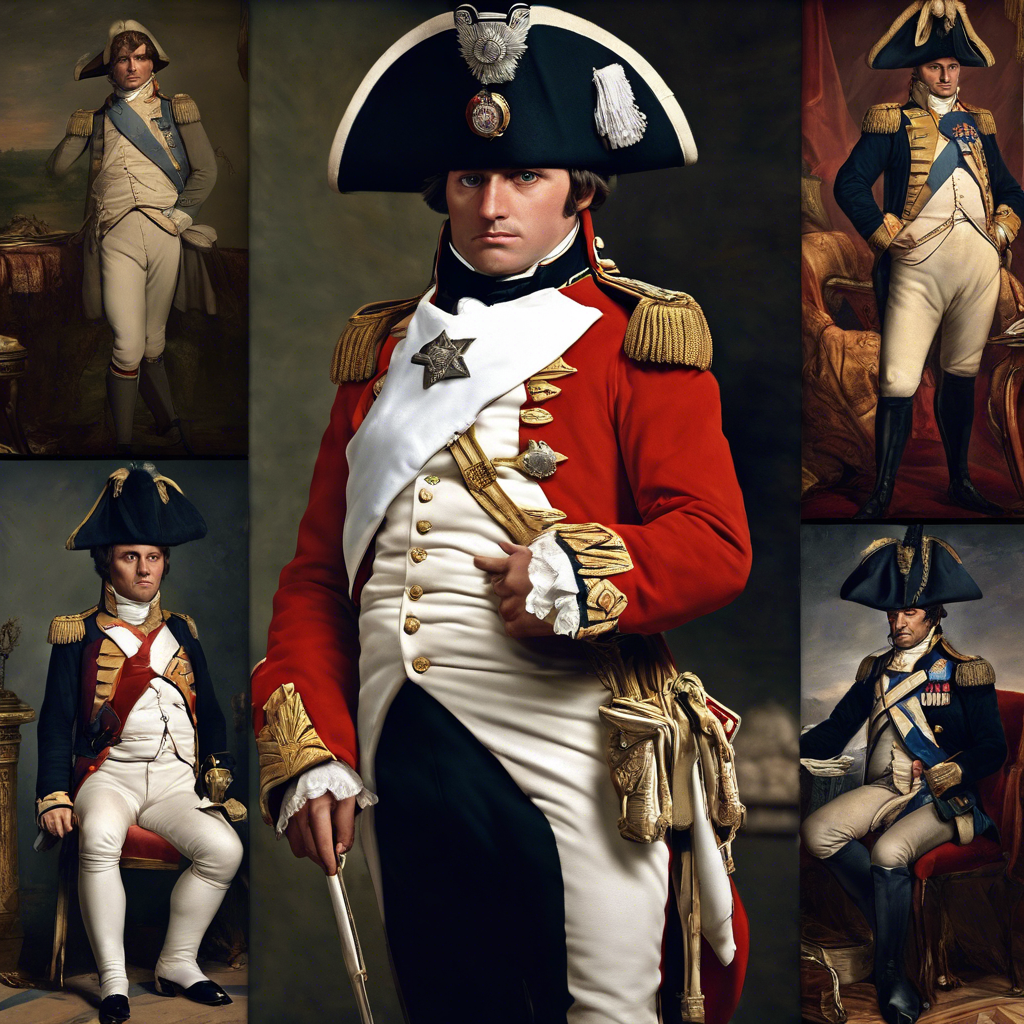Unveiling the Legacy of Napoleon Bonaparte: A Dive into History
- ChatVariety

- Jun 22, 2024
- 6 min read
Napoleon Bonaparte, a name etched in the annals of history, remains one of the most intriguing figures the world has ever known. Known for his strategic brilliance, political prowess, and ambitious vision, Napoleon shaped the course of European history in ways that still resonate today. Join us as we explore the captivating life and times of this enigmatic leader through a curated listicle that delves into the pivotal moments that defined his legacy.
1. Rise to Power
Napoleon's remarkable journey to power was intricately intertwined with the tumultuous backdrop of the French Revolution. His strategic brilliance on the battlefield not only propelled him through the military ranks at an unprecedented pace but also laid the foundation for his meteoric rise to prominence. By capitalizing on the chaos and uncertainty of the times, Napoleon deftly positioned himself as a figure of stability and strength amidst the political upheaval.
The pinnacle of Napoleon's ascent came with his coronation as Emperor in 1804, a grand ceremony that not only symbolized his personal triumph but also heralded a new era in European politics. With the imperial crown placed upon his head, Napoleon transformed from a mere military commander into a powerful sovereign, wielding authority over vast territories and diverse populations. This transformative moment not only elevated Napoleon to unprecedented heights of power but also altered the course of European history in profound ways.
As Emperor, Napoleon embarked on a series of ambitious conquests that would reshape the geopolitical landscape of Europe. His military campaigns were marked by a combination of strategic brilliance, tactical innovation, and sheer audacity, earning him a reputation as one of the greatest military leaders of his time. From the sweeping victories at Austerlitz and Jena to the ill-fated invasion of Russia, Napoleon's military exploits captivated the imagination of both his allies and adversaries, leaving an indelible mark on the annals of warfare.
In conclusion, Napoleon's ascent to power was a testament to his exceptional leadership qualities, his unparalleled military prowess, and his uncanny ability to seize opportunities in times of crisis. His journey from a young Corsican officer to the Emperor of the French was a remarkable saga of ambition, determination, and sheer force of will. Napoleon's legacy as a transformative figure in European history endures to this day, a testament to the enduring impact of his reign on the course of human events.

2. Military Campaigns
Renowned for his exceptional military acumen, Napoleon Bonaparte's strategic brilliance and unmatched leadership capabilities left an enduring impact on the history of Europe. His military campaigns, starting from the Italian campaign and culminating in the iconic Battle of Austerlitz, showcased his tactical prowess and reshaped the political dynamics of the continent. The Napoleonic Wars that followed were characterized by a series of conflicts that led to the ascent and decline of empires, fundamentally altering the geopolitical landscape of the era. Napoleon's ability to inspire his troops, his innovative military strategies, and his relentless pursuit of victory solidified his reputation as a formidable military commander. The legacy of his conquests and the consequences of his actions reverberated across Europe, influencing the course of history for years to come.
3. Code Napoleon
Napoleon Bonaparte, a prominent figure in history, left a lasting impact that transcends his military conquests. While his victories on the battlefield are well-documented, it is his legacy in governance and legal reform that truly solidifies his place in history. The Napoleonic Code, a comprehensive civil legal system introduced by Napoleon, was a groundbreaking development that revolutionized legal principles and practices. The Napoleonic Code was not just a set of laws; it was a reflection of Napoleon's vision for a society based on equality and merit. By emphasizing equality before the law and promoting meritocracy, Napoleon sought to create a fair and just legal system that would benefit all citizens. This emphasis on fairness and meritocracy laid the groundwork for modern legal systems that prioritize justice and equality. Moreover, Napoleon's reforms went beyond just legal matters. He introduced administrative, educational, and economic changes that aimed to modernize and centralize the state. His initiatives in infrastructure development, public education, and religious tolerance contributed to the transformation of France into a more progressive and efficient nation. The enduring influence of Napoleon's reforms can be seen in the legal systems of many countries around the world. The principles of equality before the law and meritocracy, championed by Napoleon, have become fundamental tenets of modern governance. The Napoleonic Code, with its focus on clarity, consistency, and accessibility, continues to serve as a model for legal systems seeking to uphold justice and fairness. In conclusion, Napoleon's legacy extends far beyond the battlefield. His visionary reforms in governance and legal systems have left an indelible mark on history, shaping the foundations of modern societies and legal frameworks. Through his commitment to equality, meritocracy, and progress, Napoleon has earned a place as a transformative figure whose influence continues to be felt today.

4. Continental System
The Continental System, devised by Napoleon Bonaparte, was a bold economic maneuver with far-reaching consequences. This strategic initiative was a testament to Napoleon's grand vision of challenging British dominance and expanding his influence worldwide. By attempting to isolate Britain economically, Napoleon sought to weaken its power and bolster his own empire. However, the repercussions of this ambitious plan extended well beyond its intended target. The implementation of the Continental System triggered a chain reaction across Europe, causing economic disruptions and political unrest in various regions. While some countries complied with Napoleon's directives, others resisted, leading to tensions and conflicts within the continent. The system's impact was profound, illustrating the interconnectedness of nations and economies during this pivotal period in history. Despite its eventual failure to achieve its primary objective of crippling British trade, the Continental System highlighted Napoleon's strategic acumen and unwavering determination. It showcased his willingness to challenge the status quo and reshape the geopolitical landscape of Europe. This ambitious endeavor, though flawed in execution, left a lasting mark on history, serving as a reminder of the complexities and consequences of global economic strategies in the pursuit of power and influence.
5. Downfall and Legacy
Napoleon's defeat at the Battle of Waterloo in 1815 was a pivotal moment that not only marked the end of his reign but also signaled a significant shift in European history. The defeat led to his exile on the remote island of Saint Helena, where he spent his remaining years in reflection and contemplation. This period of exile allowed Napoleon to ponder over his ambitious military campaigns, his sweeping legal reforms, and his lasting political legacy.
Despite his downfall, Napoleon's influence on history remains profound and far-reaching. His innovative military tactics revolutionized warfare and are still studied by military strategists today. His legal reforms, such as the Napoleonic Code, laid the foundation for modern legal systems in many countries around the world. Additionally, his political legacy continues to captivate historians and enthusiasts, who analyze his rise to power, his impact on European politics, and his lasting imprint on the world stage.
Napoleon's complex character, his strategic brilliance, and his ultimate defeat at Waterloo have all contributed to the enduring fascination with his life and legacy. His story serves as a cautionary tale of the perils of unchecked ambition and the consequences of overreaching power. As scholars continue to delve into the intricacies of his rule and his impact on the course of history, Napoleon Bonaparte remains a figure of both admiration and controversy, his legacy standing as a testament to the complexities of leadership and the enduring impact of one individual on the course of world events.

In Retrospect
As we reflect on the life and times of Napoleon Bonaparte, we are reminded of the complexities of his character, the grandeur of his achievements, and the shadows of his ambition. His story serves as a reminder of the enduring allure of power, the cost of ambition, and the indelible mark one can leave on the pages of history.
In conclusion, Napoleon Bonaparte's legacy transcends time, sparking curiosity and debate to this day. His impact on warfare, governance, and the course of European history cements his status as a figure of enduring fascination. As we navigate the echoes of his footsteps in the corridors of history, let us continue to unravel the enigma of Napoleon Bonaparte, a titan whose legacy remains etched in the sands of time.
Join us on this journey through the life and times of Napoleon Bonaparte, where history unfolds in all its grandeur, ambition, and consequence. Let us delve deeper into the legacy of a man whose name reverberates through the corridors of time, shaping the very world we inhabit.
Thank you for exploring the captivating journey of Napoleon Bonaparte with us. Stay tuned for more historical insights and intriguing narratives.






Comments